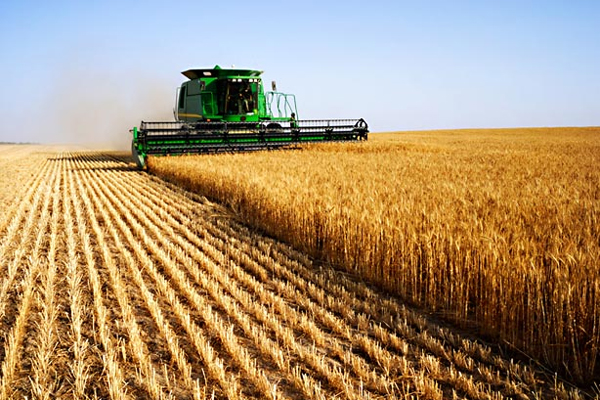



|
Tweet
Pin
It
|
Agriculture is the production of food and other goods by systematic and controlled growing of plants and living organisms. It involves working the land, harvesting the crops, rearing and management of farming as well as breeding and raising live stock. In the broad sense, Agriculture includes agronomy, animal husbandry, horticulture, floraculture, aquaculture, silviculture etc. Agriculture plays a major role in the Indian economic scenario contributing around 23% to the Gross Domestic products (GDP). Around 62% of Indian population depend on agriculture for a livelihood.
When the principles of engineering and biological science are applied to agriculture, it is called agricultural engineering. Agricultural engineering, sometimes known as biological engineering, is a diverse engineering discipline which mainly focus on the creation and development of tools (i.e farm machineries and other implements related to agriculture) that can improve farming techniques. It can also be defined as a field of agricultural science where engineering principles are applied for the improvement and advancement of agriculture industry. Modern agriculture is highly competitive and technology-driven with a wide variety of specialties and techniques. Hi-tech agricultural graduates are in great demand due to the global trend toward standardization of all agricultural products and equipment. In recent years, agricultural engineering has contributed a lot to the agricultural production in the country both directly and indirectly.
In agricultural engineering, the knowledge of agricultural principles are combined with the principles of animal biology, plant biology, mechanical engineering, civil engineering and chemical engineering. At the same time, it also utilises mathematics and science principles for the practical solutions to agricultural issues. Compared with the other engineering disciplines, agricultural engineering has an extensive scope. It is a process which involves production, processing, transportation and storage of agricultural commodities and reconstruction of rural areas. The four main branches of Agricultural engineering are (i) farm equipments (ii) rural structures (iii) soil conservation, drainage, and irrigation and (iv) rural electricity.
A career in the field of agricultural engineering is quite interesting, challenging as well as rewarding. It is an apt career for those who have keen agricultural knowledge along with good engineering skills. Agricultural engineers are those who design agricultural equipment and agricultural structures by means of better engineering methods, inventions and new technologies. In other words, they have to look after the agricultural functioning to bring about efficient increase in food productivity. With their engineering skills and knowledge, agricultural engineers solve problems related to agricultural equipment, water quality and water management, biological products, livestock facilities, food processing, and many other agricultural areas.
The career opportunities for agricultural engineering graduates has increased rapidly because of the advancements in biotechnology and growing concerns over environmental quality. Agricultural engineers can either specialize in designing power and machine systems, animal or plant production, environment management or in food and bioprocess. Some of the major jobs handled by agricultural engineers involve improving agricultural farm equipments, farm structures, rural electrification, biogas, new technologies in the design and manufacture of agricultural products and conservation of soil and water.
Tags
engineering career
,
agricultural science career
,
food science career
Find it Useful ? Help Others by Sharing Online
Comments and Discussions |
Related
Career Options
|
|||
|
|